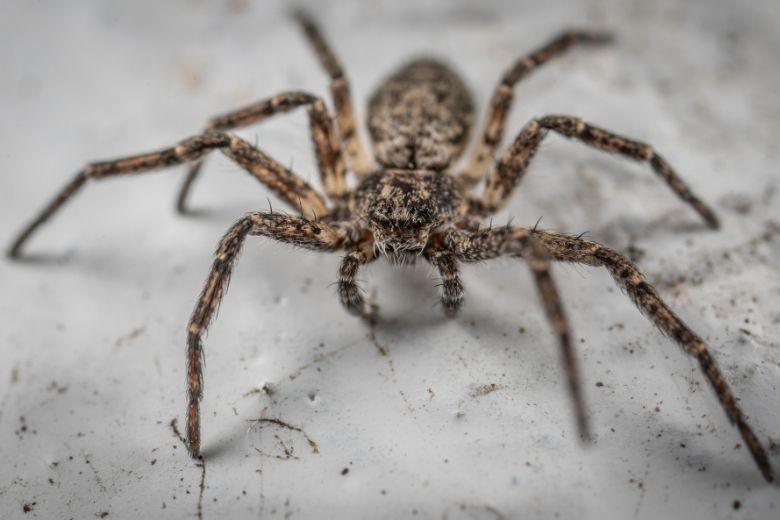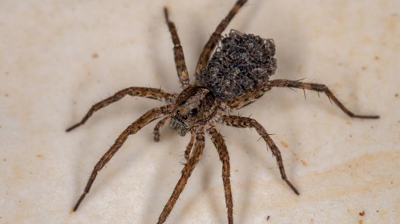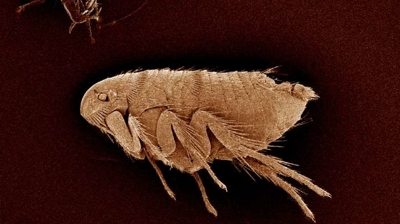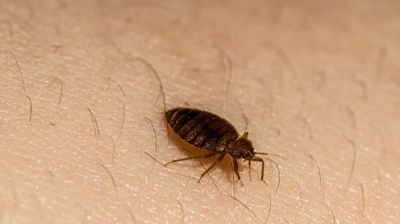
Fishing Spiders

Are Fishing Spiders Harmful?
Fishing spiders (Dolomedes spp.) are generally not considered harmful to humans, but there are a few ways in which they might be perceived as problematic:
- Venom and Bites – While fishing spiders are venomous, their venom is primarily used to subdue prey and is not medically significant to humans. A bite may cause mild pain, redness, and localized swelling, similar to a bee sting, but severe reactions are rare.
- Potential for Unexpected Encounters – Because they are semi-aquatic and often found near water bodies, they may accidentally enter homes, boats, or docks, startling individuals who are not expecting to see a large spider.
- Fear and Phobias – Their large size (some species can have a leg span of over 3 inches) and rapid movements can be intimidating, triggering arachnophobia or discomfort in people who fear spiders.
- Misidentification as More Dangerous Spiders – Some fishing spider species resemble more aggressive spiders like the wolf spider, leading to unnecessary panic or eradication efforts.
Overall, fishing spiders are more beneficial than harmful, as they help control insect populations, including mosquitoes and other pests.
Learn more: Do Fishing Spiders Bite?
Fishing Spider Removal
Getting rid of fishing spiders is important for several reasons, particularly if their presence is significant around homes, docks, or water-adjacent structures. While these spiders are not typically deadly to humans, they can pose multiple concerns:
- Bites and Medical Concerns: Fishing spiders are capable of biting if threatened or handled. Their bites are generally not lethal but can cause localized pain, redness, swelling, and itching. For individuals with allergies, even a minor bite could trigger a more serious reaction.
- Psychological Stress: The size of fishing spiders, which can reach several inches including leg span, makes them intimidating. Their presence can create anxiety or fear, especially in homes or areas where children and pets play. Persistent infestations can affect mental comfort and wellbeing.
- Predatory Behavior: Fishing spiders are aggressive hunters that feed on insects, small fish, and even tadpoles. While this can be beneficial outdoors, inside homes or near pools and ponds, they may prey on small pets or disrupt local ecosystems if introduced in non-native areas.
- Property Contamination: Fishing spiders often leave behind webs and egg sacs, which can accumulate in corners, under decks, or near water features. These can make areas unsightly and may attract other insects that feed on spider eggs, creating secondary pest issues.
- Rapid Reproduction: Female fishing spiders lay large egg sacs containing hundreds of eggs. A single infestation can multiply quickly, leading to a significant increase in spider numbers over a season if not controlled.
- Pet Safety: Though generally not fatal, fishing spider bites can harm small pets. Curious animals, like cats or small dogs, may be bitten if they attempt to play with the spider, causing pain or infection.
- Water-Adjacent Risk: Fishing spiders are semi-aquatic, often inhabiting areas near ponds, streams, and pools. This increases the risk of encounters in places where humans engage in recreation, such as fishing, swimming, or gardening, making their removal a precautionary safety measure.
With our professional pest control, targeting fishing spiders focuses on reducing their numbers, eliminating favorable habitats, and preventing reproduction. This includes removing standing water, reducing clutter near water bodies, sealing entry points, and using targeted treatments. Doing so minimizes the risk of bites, psychological discomfort, and property contamination while maintaining control over the local ecosystem.
Learn more: How To Get Rid Of Fishing Spiders
Fishing Spider Control
Hiring our professional pest control for fishing spiders (also called Dolomedes spiders) is recommended for several reasons, even though these spiders are not highly dangerous to humans:
- Expert Identification: Fishing spiders are large, semi-aquatic spiders that are often mistaken for more dangerous species. Our professionals can correctly identify the species in your home or yard, assess whether other harmful spiders are present, and avoid unnecessary worry or misapplied treatments.
- Safe Removal: While fishing spiders are not aggressive, their bite can be painful if they feel threatened. Our professionals use safe handling and containment techniques, apply spider control treatments in a way that minimizes risk to humans, pets, and beneficial insects, and ensure that treatments are effective without overusing harmful chemicals.
- Targeted Treatments: Fishing spiders often live near water sources, such as ponds, streams, or damp areas around the home. Our professionals can treat the problem at its source rather than only where you see spiders, apply integrated pest management (IPM) strategies, combining habitat modification, exclusion, and selective chemical control if needed, help prevent future infestations by addressing structural or environmental factors that attract spiders.
- Preventing Reinfestation: Fishing spiders can enter homes in search of food or shelter. Our professionals help by sealing entry points such as gaps under doors, windows, and cracks in foundations, reducing outdoor habitats that support insects (their main prey), and advising on ongoing maintenance to keep your property spider-free.
- Peace of Mind: Even if you’re comfortable with spiders, fishing spiders are large and fast, which can be intimidating. Hiring professionals ensures comprehensive, lasting results, a safer environment for families, especially children and pets, and expertise in managing potential underlying pest problems that attract spiders, like insects near water sources.
While fishing spiders are generally not dangerous, their size, habitat preferences, and occasional presence indoors make them challenging to manage. Our professional pest control ensures safe, effective removal, prevents future infestations, and reduces stress associated with these large arachnids.
Fishing Spider Exterminators
Hiring our local exterminators instead of a national pest control company for fishing spiders provides several advantages:
- Local Knowledge of Spider Behavior: Our local exterminators understand the specific habits of fishing spiders in your area—where they nest, peak activity seasons, and their preferred hiding spots. National companies use standardized protocols that often do not account for local environmental factors, such as regional vegetation, water sources, or seasonal temperature changes that affect spider populations.
- Customized Treatment Plans: Our local professionals create a tailored strategy based on your property's layout, proximity to water, and infestation severity. This might include targeted habitat modification, strategic web removal, and precise chemical and/or non-chemical treatments. National chains rely on generic treatments that often underperform if they don’t account for local spider behavior.
- Faster Response and Flexibility: Our local exterminators are typically able to respond quickly to urgent infestations. Fishing spiders can multiply rapidly, so a fast, decisive intervention reduces the risk of large-scale reproduction. National companies often have scheduling delays of several days, sometimes even a week or two.
- Follow-Up and Long-Term Prevention: Our local experts provide thorough follow-up visits as needed, and proactive advice on preventing reinfestation. We monitor nearby water sources, structural vulnerabilities, and surrounding vegetation that attract fishing spiders. National firms sometimes limit follow-ups or rely on uniform service agreements that may not adapt well to your property’s specific and changing conditions.
- Community-Specific Expertise: Our local exterminators are familiar with regional environmental regulations and safe pesticide use, particularly around ponds, streams, or sensitive ecosystems where fishing spiders thrive. This ensures our treatments are effective while minimizing unwanted environmental impact—something national companies often overlook due to broader operational policies.
- Accountability and Reputation: Our local team depends on our community reputation for continued success. This translates into higher attention to detail, transparency, and personalized service. With national chains, accountability often feels impersonal, and your services may be handled by different technicians each time.
- Integrated Pest Management (IPM) Expertise: Our local professionals specialize in IPM, which combines habitat modification, exclusion techniques, and targeted chemical treatments for maximum efficacy. This approach is particularly effective for fishing spiders, which are semi-aquatic and often avoid simple pesticide applications alone.
Our local exterminators provide a combination of precision, speed, adaptability, and accountability that national companies cannot match, making us the best choice for managing fishing spider infestations efficiently and safely.
Fishing Spider Solutions
Our exterminators use Integrated Pest Management (IPM) to control fishing spiders because, although these spiders are generally non-aggressive toward humans, their large size and presence near homes, docks, or recreational areas can cause concern and become a nuisance. IPM begins with a thorough inspection to identify areas of spider activity, such as ponds, streams, or damp structures, and environmental conditions that attract them, including abundant prey and sheltered hiding spots. Management strategies focus on habitat modification by reducing vegetation and debris near water sources, controlling insect populations that serve as food, and minimizing access to areas where spiders may congregate. Physical controls, such as careful removal and exclusion from sensitive indoor or high-traffic areas, are applied selectively, while chemical treatments are used sparingly and only when necessary. Ongoing monitoring allows our exterminators to track spider populations, evaluate the effectiveness of control measures, and prevent reinfestation. By integrating inspection, habitat management, selective control, and monitoring, IPM provides a long-term, environmentally responsible, and effective approach to managing fishing spider populations.
What Do Fishing Spiders Look Like?
Fishing spiders, belonging to the family Pisauridae, exhibit distinctive physical characteristics that make them well-suited for their semi-aquatic lifestyle. Here is what fishing spiders typically look like:
- Size: Fishing spiders come in a range of sizes, with some of the larger species having a leg span of up to 3-4 inches (7-10 cm). The size can vary among different species and individuals.
- Body Shape: These spiders have a somewhat flattened body, which helps them move easily across the water's surface. This flattened shape allows them to distribute their weight and reduce the likelihood of breaking through the water's surface tension.
- Legs: Fishing spiders have long, slender legs that are well-suited for both walking on water and capturing prey. The legs are covered in fine hairs, which help them stay buoyant and maintain their grip on the water's surface. These hairs also detect vibrations in the water, helping the spider locate prey.
- Coloration: The coloration of fishing spiders typically includes various shades of brown, gray, and sometimes green. This coloration provides effective camouflage against their natural background, which often includes the murky waters of ponds, streams, and marshes.
- Eye Arrangement: Fishing spiders have eight eyes arranged in two rows. The eyes are relatively large and positioned at the front of their cephalothorax. While they have good vision, their primary mode of prey detection relies on detecting vibrations in the water.
- Abdomen: The abdomen of fishing spiders is generally oval or elongated in shape. It can vary in size depending on the spider's age and nutritional status.
- Sexual Dimorphism: In some species, you can observe sexual dimorphism, where males and females may have slightly different features. Males may have longer and thinner pedipalps, which are used in mating.
The specific appearance of fishing spiders can vary among different species and may depend on their geographic location. These spiders are highly adaptable and can be found in a variety of environments worldwide. Their physical characteristics are well-suited to their hunting methods, where they can move gracefully on the water's surface and subdue aquatic prey.
Where Are Fishing Spiders Found?
Fishing spiders (family Pisauridae) are semi-aquatic spiders known for their habitat preferences near freshwater sources. You can typically find fishing spiders in a range of regions worldwide, but they are most commonly associated with specific types of environments. Here are some places where you might find fishing spiders:
- Ponds and Lakes: Fishing spiders are often found near calm, freshwater bodies such as ponds, lakes, and reservoirs. They use the water's surface tension to their advantage, allowing them to walk on water or dive beneath it to catch prey.
- Streams and Rivers: These spiders are also prevalent in and around slow-moving or gently flowing streams and rivers. They can be found on the banks, rocks, and vegetation adjacent to the water.
- Marshes and Wetlands: Fishing spiders are well adapted to the lush and humid environment of marshes and wetlands. They can be spotted on aquatic plants, along the edges of marshes, and sometimes even on the water's surface.
- Swamps: In swampy areas with standing or slow-moving water, fishing spiders are common inhabitants. They navigate through the dense vegetation and hunt for aquatic prey.
- Bogs: Bogs, characterized by acidic and nutrient-poor water, are also suitable habitats for certain species of fishing spiders. They can be found in and around these unique ecosystems.
- Rainforests: In tropical rainforests, various species of fishing spiders can be discovered, often near rainforest streams and bodies of water.
- Temperate and Boreal Forests: Even in cooler regions, fishing spiders can thrive in forested areas near streams, ponds, or other water bodies.
- Urban and Suburban Areas: Fishing spiders can adapt to human-altered landscapes, including urban and suburban areas with artificial ponds, ditches, and garden water features. They are sometimes found in residential gardens and parks with aquatic habitats.
- Asia, Europe, North America, Australia: Fishing spiders have a widespread distribution and can be found in these continents and their associated regions.
These spiders are not limited to a single geographic location and can be remarkably adaptable to their surroundings. They play an essential role in controlling aquatic insect populations and are a fascinating part of the ecosystem in the areas where they reside. Keep in mind that the specific species of fishing spider and their distribution may vary depending on your location.
What Do Fishing Spiders Eat?
Fishing spiders (family Pisauridae) are skilled and opportunistic predators that primarily feed on a diet of various aquatic prey. Their diet includes a wide range of small organisms found in or near freshwater habitats. Here is what fishing spiders might eat:
- Aquatic Insects: Fishing spiders commonly feed on a variety of aquatic insects, including water striders, water bugs, beetles, mosquitoes, dragonflies, and damselflies. They often capture these insects by ambushing them from the water's surface.
- Tadpoles: Some larger fishing spider species are capable of capturing and consuming tadpoles, particularly in their early developmental stages when they are more vulnerable.
- Small Fish: In certain cases, larger fishing spiders have been observed catching and consuming small fish, such as minnows and other fish fry. They do this by diving beneath the water's surface and grabbing fish that come too close.
- Crustaceans: Crustaceans, like water fleas and tiny shrimp, are also part of the fishing spider's diet. These small aquatic organisms are often on the menu when they come within striking distance.
- Aquatic Worms: Fishing spiders may prey on aquatic worms, which can be found in the mud and substrate of freshwater habitats.
- Spiders and Other Arthropods: While fishing spiders primarily target aquatic prey, they may also eat other spiders or terrestrial arthropods if they encounter them near the water's edge.
- Bees and Wasps: In some cases, fishing spiders have been known to catch and consume flying insects like bees and wasps when they come to the water's surface to drink.
- Mollusks: Some fishing spiders have been observed preying on small aquatic snails and mollusks.
- Dipteran Larvae: The larvae of various fly species can be a food source for fishing spiders, especially when they live in or near the water.
- Other Small Aquatic Organisms: Fishing spiders are versatile predators and will opportunistically feed on any small aquatic organisms that come within their reach, which can include insect larvae, water mites, and more.
Fishing spiders are well-adapted to their semi-aquatic lifestyle and use their ability to walk on water and submerge themselves to their advantage when hunting. They detect vibrations on the water's surface to locate potential prey, striking quickly to capture it with their venomous bite. While they primarily prey on aquatic organisms, they are not a threat to larger animals, including humans, due to the relatively low potency of their venom.
Fishing Spider Life Cycle
The life cycle of fishing spiders (family Pisauridae) follows a typical spider life cycle with distinct stages, including egg-laying, hatching, and development. Here is an overview of the life cycle of fishing spiders:
- Egg Laying: The life cycle of fishing spiders begins when a female lays eggs. She produces an egg sac made of silk, which serves to protect and shelter the developing eggs. The female carries the egg sac with her, often attaching it to her body, or she hides it in a secure location.
- Egg Development: Inside the egg sac, the eggs undergo development. The female guards and cares for the eggs, ensuring they remain safe from predators and environmental factors.
- Hatching: When the spiderlings are fully developed, they hatch from the egg sac. This stage can occur in spring or early summer, depending on the species and local climate.
- Early Spiderlings: Once hatched, the young spiderlings emerge and disperse. They are miniature versions of adult fishing spiders but lack the fully developed characteristics. At this stage, they are entirely dependent on their own resources for survival.
- Molting: As the spiderlings grow, they go through a series of molts, shedding their exoskeletons to accommodate their increasing size. Each molt is called an instar, and they progress through several instars before reaching maturity. The number of molts can vary among species.
- Maturation: Fishing spiders typically reach maturity after undergoing several molts. The time it takes for them to reach maturity can vary depending on factors such as species, temperature, and food availability.
- Mating: Once they have reached maturity, adult male and female fishing spiders engage in mating. Males usually engage in courtship rituals to approach and mate with females.
- Reproduction: After successful mating, the female produces one or more egg sacs. She then carries or hides the egg sacs, safeguarding them until the spiderlings are ready to hatch.
The specific duration of each life cycle stage and the number of eggs in each egg sac can vary among fishing spider species. Parental care, including guarding the eggs and young, is a notable characteristic of many fishing spider species. This care ensures the survival of the offspring during their early vulnerable stages. The life cycle of fishing spiders is well-adapted to their semi-aquatic lifestyle and plays a crucial role in their ecological niche.

Hear From Our Happy Customers
-
"Exceeds Expectations"
I can’t say enough positive things about this company... The tech that came out, Jarvis went above and beyond my expectations. Thank you guys, I will continue using your services.
- Jake M. -
"Professional & Considerate"
I’m pleased with Miche services. Jarvis came today. Professional and considerate. Thank you!
- Judy B. -
"Very Knowledgeable"
The tech that arrived was courteous, professional, and very knowledgeable. He was Great.
- Uerial I. -
"Wonderful Service"
Wonderful service. Jarvis is great. Took care of everything I needed. Thank you!
- Henry P. -
"Great Communication"
Tech was on time, communication was great, and he accommodated my needs.
- Alonzo W. -
"Fantastic & Patient"
Jarvis was fantastic and patient. He answered my questions with an in-depth explanation and addressed all of my areas of concern. Would love for him to be my assigned tech going forward. Well done!
- Yonnette M.



